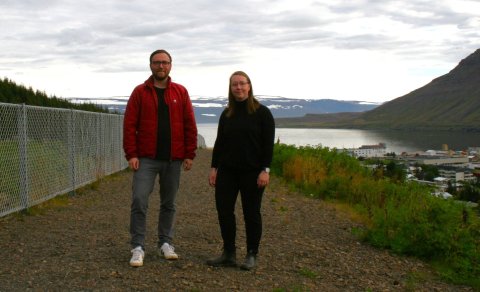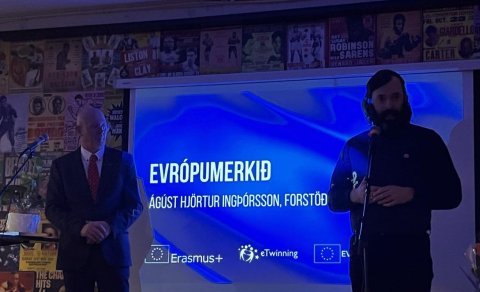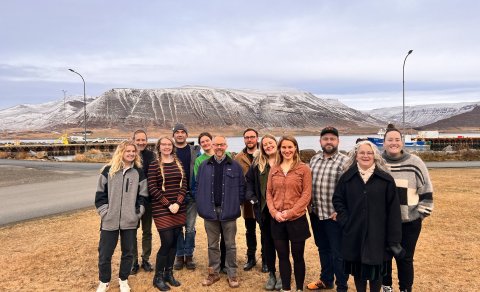20.11.2023
Matthias Kokorsch, academic director of the Coastal Communities and Regional Development master’s program at UW and Jóhanna Gísladóttir, from the Agricultural University of Iceland (Landbúnaðarháskóli Íslands), have been researching the interaction between place attachment and natural disasters with the CliCNord project. The CliCNord project examines how small rural communities in the Nordic countries understand their own situation, how they handle adverse events, and under what circumstances they need help from the established system and civil society organizations. There are different hazards that affect local communities across the Nordic countries that are regarded as a direct consequence of climate change, like coastal flooding, cloudbursts, wildfires, slush avalanches, and flash floods for example. In the CliCNord project, there are 8 different cases in 5 countries: Denmark, Sweden, Norway, the Faroe Islands and Iceland.
14.11.2023
The campaign Gefum íslensku séns or “Give Icelandic a chance” has been awarded the European Language Label. The award encourages the development of new techniques and initiatives in the field of language learning and teaching. The label is awarded to the most innovative language learning projects in each EU member state and third country associated to Erasmus+. The campaign Give Icelandic a Chance received the award from the Ministry of Education and Children's Affairs and Rannís in collaboration with the European Commission. You can read more about the European Language Label here.
11.11.2023
On Friday, November 10th, the weekly lunch lecture was held outside the walls of the University Centre of the Westfjords for the first time. The event was held at Blábankinn in Þingeyri, where researchers from the Westfjords gave short lectures about their latest work. The researchers are part of the Westfjords Research Association , which is a group of people who conduct research in the Westfjords and the surrounding area. The speakers were from the University Centre of the Westfjords (UW), the University of Iceland and the Natural Science Institute of the Westfjords.


